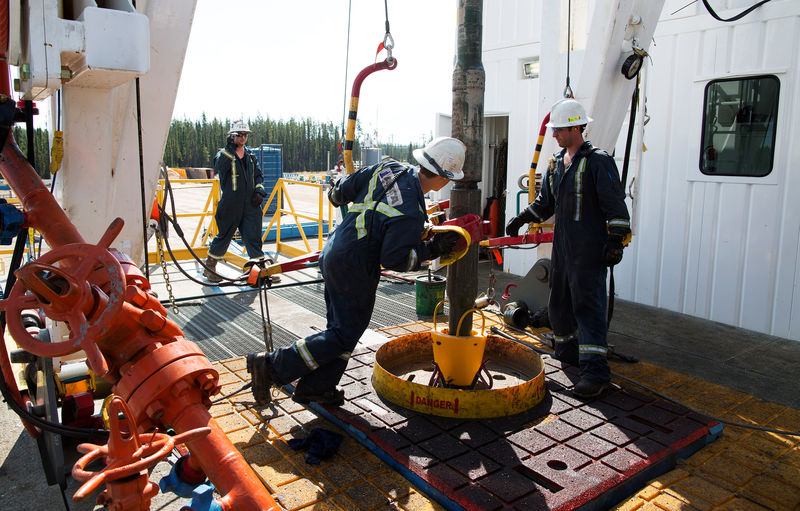By Adam Claringbull
Investing.com – Oil was up on Monday morning in Asia, after pushing up strongly over the weekend as hopes of a vaccine being rolled out before Christmas took hold and boosted hopes for a recovery in fuel demand. The U.S. has indicated that COVID-19 vaccinations could start as early as Dec 11.
Brent oil futures was up 0.22% to $45.17 by 11:34 PM ET (3:34 AM GMT) and WTI futures inched up 0.05% to $42.44. Both Brent and WTI futures stayed above the $40 mark, and Brent futures rolled over to the February 2021 contract on Nov. 22.
The news that a vaccination program could at last be in sight pushed oil to near-12-week gains over the weekend after Pfizer Inc (NYSE:PFE) and BioNTech (F:22UAy) applied for U.S. FDA emergency drug authorization for their COVID-19 vaccine on Friday. Moderna Inc (NASDAQ:MRNA). also announced on Friday that that it was also close to seeking the same approval after releasing promising data from its final-stage vaccine trial.
Moncef Slaoui, head of the U.S. government’s Operation Warp Speed, announced the possible Dec. 11 start date on Sunday.
"Positive sentiment continues to be driven by the recent good news about the efficacy of coronavirus vaccines in development and the expectation that the OPEC+ meeting at the end of this month could see the group extend current cuts by 3-6 months," Stephen Innes, Chief Global Markets strategist at Axi, told Reuters.
Markets jumped on the positive news, despite the rocketing numbers of new COVID-19 infections and tightening public health restrictions across Europe and the U.S. Even with the advent of a viable vaccine, it will be quite some time before production and logistics are able to match the demand levels.
In further positive developments, the Organization of Petroleum Exporting Countries and its allies (OPEC+) look likely to maintain their current supply cuts of 2 million barrels per day (bpd) past their current January expiration date. The group is said to be looking at delaying the reinstatement of supply for at least three months, and meets for its full ministerial meeting on Nov. 30 and Dec. 1.
However, a group smaller Russian oil companies said on Friday that still plan to pump more crude this year despite the production cuts, as they have little leeway in managing the output of start-up fields.
